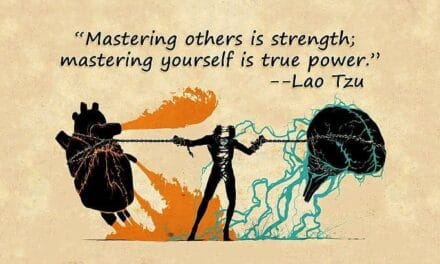In today’s fast-paced business environment, the use of coaching methodologies that align with modern business leadership challenges has become essential for leaders striving for effectiveness and adaptability. With technological advancements, shifting workforce dynamics, and an ever-evolving marketplace, leaders face unprecedented complexities. How can they cultivate the skills necessary to navigate these challenges successfully? The answer lies in adopting innovative coaching strategies that not only empower individual leaders but also foster a culture of continuous improvement throughout their organizations. This blog post delves into various coaching methodologies that can help leaders enhance their capabilities and prepare them for the future of business.
Understanding Modern Leadership Challenges
The business landscape is evolving at an unprecedented pace, and leaders today face a multitude of challenges that require adaptable and efficient responses. From digital transformation to remote workforce management, the pressures exerted by economic uncertainties and technological advancements significantly impact leadership effectiveness.
Key Challenges Faced by Today's Leaders
Rapid Technological Changes: Leaders must continuously adapt to disruptive technologies that alter traditional business models.
Workforce Diversity: Managing a diverse workforce requires inclusive leadership approaches that resonate with various cultural backgrounds and expectations.
Change Management: Navigating through organizational changes while gaining buy-in from stakeholders remains a significant hurdle.
Employee Engagement: With remote work becoming commonplace, keeping teams motivated and engaged has never been more complex.
The Impact of Technology on Leadership Dynamics
Technology not only presents new tools for efficiency but also reshapes the expectations placed on leaders. Modern business leaders need to embrace new coaching methodologies that align with modern business leadership challenges, leveraging technology to foster collaboration and drive innovation.
Coaching plays a pivotal role in equipping leaders to manage these challenges effectively. By focusing on personalized coaching experiences, leaders can develop the skills necessary to thrive in this dynamic environment.
The Importance of Coaching in Leadership Development
How Coaching Supports Leaders in Overcoming Challenges
Coaching is essential to empowering leaders to face contemporary challenges head-on. Through individualized support, leaders can:
Develop critical soft skills, such as emotional intelligence and conflict resolution.
Enhance decision-making abilities by learning from experienced coaches.
Foster resilience in the face of adversity through targeted feedback.
The Role of Personalization in Effective Coaching
Personalized coaching allows leaders to focus on their unique strengths and areas for improvement. An individualized coaching approach ensures that leaders receive guidance tailored to their specific contexts. This adaptation is crucial when utilizing coaching methodologies that align with modern business leadership challenges.
Benefits of Integrating Coaching into Leadership Programs
Incorporating coaching into leadership development programs enhances the overall effectiveness of training initiatives. The primary benefits include:
Increased confidence and capability among leaders.
Improved team dynamics and collaboration.
Heightened organizational performance and effectiveness.
For more insights on leadership challenges and development, consider exploring resources from Harvard Business Review.
Exploring Coaching Methodologies that Align with Modern Business Leadership Challenges
In the quest for effective leadership, it is essential to adopt coaching methodologies that not only resonate with current business dynamics but also address specific challenges faced by leaders today. By focusing on innovative approaches, businesses can empower their leaders to navigate through complexities with confidence.
Emotional Intelligence Coaching
Understanding Emotional Intelligence
Emotional intelligence (EI) refers to the ability to recognize, understand, and manage our own emotions while also understanding others' emotions. This skill set is vital for leaders aiming to foster a collaborative and productive workplace.
Relevance in Leadership Contexts
Leaders proficient in emotional intelligence can effectively communicate, motivate their teams, and handle conflicts, making it a key asset in modern business environments.
Agile Coaching
Principles of Agile Methodology
Agile coaching incorporates principles of flexibility and responsiveness, encouraging leaders to adapt quickly to change. It emphasizes collaboration, customer feedback, and iterative progress.
Adapting Agile Coaching for Leadership Development
By utilizing agile coaching methodologies, leaders can learn to:
Embrace change rather than resist it.
Foster a culture of continuous improvement within teams.
Facilitate quicker decision-making processes.
Transformational Coaching
Concepts of Transformational Leadership
Transformational coaching focuses on inspiring and motivating leaders to bring about significant changes within their organizations. This methodology encourages leaders to cultivate a vision and engage their teams towards achieving that vision.
Strategies for Fostering Transformation in Leaders
Key strategies include:
Encouraging a growth mindset.
Promoting innovation and creativity within teams.
Helping leaders become change agents in their organizations.
By adopting these coaching methodologies that align with modern business leadership challenges, organizations can better prepare their leaders to thrive amidst uncertainty and change. For more best practices on leadership development, visit McKinsey & Company.
The Application of Cognitive Behavioral Coaching
Understanding Cognitive Behavioral Approaches
Cognitive Behavioral Coaching (CBC) is a structured approach that combines cognitive therapy principles with coaching techniques. It focuses on helping leaders identify and alter negative thought patterns that can impede effective decision-making and performance.
Techniques for Leaders to Improve Decision-Making
Cognitive Behavioral Coaching can empower leaders to enhance their decision-making skills by teaching them how to:
Recognize cognitive distortions that affect their judgments.
Challenge and reframe negative thoughts into constructive ones.
Develop actionable strategies based on a clearer understanding of their thought processes.
Enhancing Resilience Through Cognitive Behavioral Coaching
Resilience is a critical trait for modern leaders, especially in the face of constant change and uncertainty. CBC provides tools and frameworks that equip leaders to build resilience, helping them to:
Manage stress more effectively.
Maintain a positive outlook even in challenging situations.
Bounce back from setbacks with renewed energy and focus.
Integrating cognitive behavioral coaching into leadership development programs highlights the importance of mental agility in navigating today's complex business world. By adopting these coaching methodologies that align with modern business leadership challenges, leaders can significantly improve their effectiveness and adaptability. For further resources on the power of coaching in leadership, consider visiting Forbes.
Integrating Data-Driven Insights into Leadership Coaching
Utilizing Analytics to Identify Leadership Gaps
In today's data-centric world, leveraging analytics offers valuable insights that can inform leadership coaching strategies. By assessing performance metrics and feedback, organizations can pinpoint areas where leaders may need additional support. This process includes:
Analyzing employee engagement surveys to identify leadership effectiveness.
Using productivity data to evaluate team performance and leader impact.
Monitoring turnover rates to understand leadership and organizational dynamics.
Measuring Coaching Effectiveness with Key Performance Indicators
To ensure that coaching methodologies yield positive outcomes, it is essential to employ key performance indicators (KPIs). KPIs provide a measurable way to assess the impact of coaching programs and can include metrics such as:
Improvement in team morale and engagement levels.
Increases in project completion rates and efficiency.
Enhanced communication and collaboration among teams.
Adapting Coaching Strategies Based on Data Feedback
Data-driven insights not only identify gaps but also help in adapting coaching methodologies that align with modern business leadership challenges. By regularly reviewing analytics, organizations can:
Tailor coaching approaches to meet emerging needs.
Adjust training programs based on leader performance and stakeholder feedback.
Develop proactive strategies for future challenges, ensuring continuous improvement.
Integrating data-driven insights into leadership coaching enhances the effectiveness of the programs and empowers leaders to make informed decisions. For further reading on the importance of data in leadership development, visit Gartner.
Customizing Coaching Experiences for Diverse Leadership Styles
Identifying Different Leadership Styles
Leadership is not a one-size-fits-all approach; different styles resonate with diverse teams and organizational cultures. Recognizing these varying leadership styles is crucial for tailoring coaching methodologies that align with modern business leadership challenges. Common leadership styles include:
Transformational Leadership: Focuses on inspiring and motivating others to achieve their highest potential.
Transactional Leadership: Centers on structure, rewards, and punishments to manage teams.
Servant Leadership: Prioritizes the needs of the team and encourages collaboration and support.
Tailoring Coaching Methodologies to Individual Needs
Customizing coaching experiences is essential for addressing the unique challenges that different leaders face. Some effective strategies for tailoring coaching methodologies include:
Conducting assessments to identify individual strengths and weaknesses.
Utilizing personality frameworks like DISC or MBTI to customize coaching approaches.
Creating development plans that reflect personal and organizational goals.
Creating Inclusive Coaching Environments
An inclusive coaching environment fosters trust, encourages participation, and honors diverse perspectives. To cultivate such an environment, leaders can:
Encourage open dialogues and feedback from team members.
Use culturally aware coaching techniques that respect different values and beliefs.
Provide opportunities for peer coaching and share diverse experiences collaboratively.
By customizing coaching experiences for diverse leadership styles, organizations can enhance the effectiveness of their training programs while better preparing leaders to tackle the modern challenges they face. For more insights on inclusive leadership practices, consider checking resources from Deloitte.
Future Trends in Leadership Coaching
The Role of Technology in Modern Coaching Practices
As the landscape of business continues to evolve, technology plays an increasingly vital role in leadership coaching. Innovations are transforming how coaching methodologies are delivered and experienced. Key technologies shaping the future of coaching include:
Artificial Intelligence: AI-driven coaching tools provide personalized insights and suggestions based on leader performance and behavior patterns.
Virtual Reality: VR can offer immersive coaching experiences, allowing leaders to practice skills in simulated environments.
Mobile Coaching Apps: These apps enhance accessibility, enabling leaders to engage with coaching materials and resources anytime, anywhere.
Emerging Coaching Methodologies for Upcoming Challenges
To effectively address the complexities of the future, new coaching methodologies are emerging. These contemporary approaches include:
Hybrid Coaching Models: Combining traditional face-to-face coaching with virtual sessions to provide flexibility and accessibility.
Coaching for Wellbeing: Integrating mental health and wellbeing practices into coaching to promote overall health and resilience among leaders.
Data-Driven Coaching: Utilizing data analytics to identify trends and issues, allowing coaches to customize their approach to meet leaders' needs proactively.
Preparing Leaders for Future Business Landscapes
To navigate the challenges of tomorrow, organizations must focus on equipping leaders with the skills essential for adapting to changing environments. Strategies for preparing leaders include:
Encouraging a culture of continuous learning and development.
Providing coaching on emerging trends, such as sustainability and digital transformation.
Fostering agility by incorporating real-time feedback into the coaching process.
By embracing these trends and integrating innovative coaching methodologies that align with modern business leadership challenges, organizations can prepare their leaders for success in an ever-changing landscape. For more insights on transformational coaching practices, explore the resources available at Harvard Business School.
Conclusion: Embracing Coaching Methodologies for Sustainable Leadership Growth
The Long-Term Benefits of Adapting Coaching Approaches
In an era defined by rapid change and complex challenges, embracing effective coaching methodologies is crucial for sustainable leadership growth. Organizations that prioritize personalized and adaptive coaching strategies not only equip their leaders with essential skills but also foster a more resilient and innovative organizational culture. The long-term benefits include:
Enhanced leader performance and decision-making capabilities.
Increased employee engagement and satisfaction.
Improved organizational resilience in times of uncertainty.
Encouragement for Leaders to Invest in Continuous Development
Investment in continuous leadership development through tailored coaching methodologies that align with modern business leadership challenges is not merely an option; it is a necessity. Leaders are encouraged to:
Seek out coaching opportunities that focus on both personal and organizational growth.
Embrace a mindset of lifelong learning, as the business landscape will continue to evolve.
Foster a supportive environment where feedback is valued and acted upon.
By recognizing the importance of personal and professional growth, leaders can navigate their organizations through changing times while achieving sustainable success. For more insights on leadership development, visit PwC.
Key Takeaways for Implementing Effective Coaching Methodologies
Highlighting Effective Leadership Practices
As organizations move forward, implementing effective coaching methodologies can dramatically improve leadership capabilities. Here are some key takeaways for businesses looking to adopt coaching strategies that align with modern business leadership challenges:
Focus on Individualized Coaching: Personalizing coaching experiences ensures that each leader receives support tailored to their specific challenges and growth areas.
Integrate Technology: Leverage technological tools to facilitate coaching sessions and track leader development progress more effectively.
Encourage Open Communication: Establish a culture where feedback is welcome, promoting transparency and continuous improvement among leaders.
Building a Culture of Learning and Adaptation
Creating a culture of learning and adaptation is vital for the success of any coaching initiative. Leaders should:
Participate in ongoing training that incorporates emerging trends and best practices in coaching.
Share their learning experiences with peers to foster a collaborative environment.
Be open to experimentation, allowing for innovative approaches to emerge from coaching sessions.
Prioritizing Long-Term Growth and Sustainability
Ultimately, implementing coaching methodologies that align with modern business leadership challenges is about long-term growth and sustainability. To achieve this, organizations should:
Measure the impact of coaching initiatives through regular assessments and feedback loops.
Align coaching objectives with broader organizational goals to ensure coherence and relevance.
Recognize and celebrate successes, motivating leaders to strive for excellence continually.
For further information on effective leadership practices and coaching strategies, visit McKinsey & Company.
What are coaching methodologies that align with modern business leadership challenges?
Coaching methodologies that align with modern business leadership challenges refer to structured approaches designed to enhance leadership skills and effectiveness in contemporary work environments. These methodologies often include emotional intelligence coaching, agile coaching, cognitive behavioral coaching, and data-driven coaching, all of which help leaders adapt to rapid changes and complex situations.
How can coaching improve leadership effectiveness?
Coaching can significantly improve leadership effectiveness by providing tailored support and feedback that helps leaders identify their strengths and weaknesses. Through personalized coaching sessions, leaders can develop critical skills such as decision-making, emotional intelligence, and resilience, ultimately leading to better team performance and higher organizational productivity.
What is the role of technology in leadership coaching?
Technology plays an essential role in modern leadership coaching by enabling more accessibility and personalization. Tools such as virtual coaching platforms, mobile apps, and AI-driven analytics facilitate coaching sessions, track leader progress, and provide data-driven insights that help coaches tailor their approaches to meet individual needs effectively.
How do organizations measure the success of coaching programs?
Organizations can measure the success of coaching programs through various key performance indicators (KPIs), including improvements in employee engagement scores, the achievement of specific leadership objectives, and feedback from both the leaders receiving coaching and their team members. Regular assessments and performance evaluations also help track the long-term impact of coaching interventions.
Why is customizing coaching important for different leadership styles?
Customizing coaching is vital because different leadership styles resonate with varying team dynamics and organizational contexts. By tailoring coaching experiences to address specific leadership styles, organizations can ensure that the coaching is relevant and effective, ultimately leading to more engaged leaders who can drive their teams towards success.





